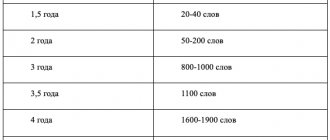Each person has a certain vocabulary that he uses when communicating. Your active vocabulary includes the words you use in your speech or writing. In this article we will look at how an active stock differs from a passive one, and how to develop each of them.
What is the difference
Passive vocabulary includes those words that you learn in the process of working with words, understand them, but cannot yet use in your daily speech. For example, you can find frequent use of the word “talk” in the active dictionary. The word “chat” is in the passive, but it is rarely used.
Or it can be explained using the example of the Russian language. It should be clearer this way. Take, for example, the word “traffic light”. You know this word and can easily use it where appropriate. But take, for example, the words “kaleidoscope” or “conceptual”. You know the meaning of these words, recognize them in the text and, if desired, will be able to explain their meaning to another person. But in your everyday speech you either don’t use them or use them very rarely.
This phenomenon is observed not only in English, but in other languages too. There are rarely used (passive) words and frequently used (active) words. Words can go from active to passive if you don't use them, and vice versa - from passive to active if you start using it quite often.
vocabulary also depends on the level of knowledge of each student . The more words he has, the better and more varied his speech will be. Let's talk in more detail about the individual dictionary.
Read also
IELTS or TOEFL: what's the difference?
Vocabulary and its importance in personality development
The wealth of vocabulary directly indicates the level of intellectual development of a person. A person with a rich vocabulary is perceived by society as a bright, intelligent, perhaps gifted and extraordinary person, capable of competently formulating his ideas, thoughts and conveying them to his interlocutor.
People with a rich vocabulary are more successful in business, move up the career ladder faster, and both colleagues and management are more willing to listen to them. Such people are highly likely to have interesting, exciting and creative work, and significant achievements.
The higher the level of development of verbal intelligence, the more likely it is that a person will succeed in both business and personal life.
Individual dictionary
Any language is extremely diverse, and knowing a language does not mean knowing all its words and expressions . This is simply impossible, because even in your native language, sometimes you are amazed at how much is still unknown, and this is not to mention specific names and terms relating to certain professions, names of birds, flowers, medical terms, and so on.
To know a language means to have a certain vocabulary sufficient for communication in different situations. This is a purely individual thing, which depends on the needs of each individual person, but also, of course, on different levels.
You can know a few words, but use them masterfully and create complex lexical structures. And even with a huge vocabulary, you may not be able to convey your thoughts. If we talk about dry quantities, here are the approximate requirements for how many words a person should know at a certain level of English proficiency:
- Starter – 500–600 words
- Elementary – 1000–1300 words
- Pre-Intermediate – 1400–1800 words
- Intermediate – 2000–2500 words
- Upper-Intermediate – 3000–4000 words
- Advanced – 4000–7000 words
- Proficiency – 7000–12000 words
And one more interesting point. Ten thousand words is not twice as good as five thousand. And two thousand is not twice as good as one. After all, words are not equal in value. Some are used more often, while others less often. After learning a few thousand words, you will already understand up to 80% of what is written in English texts. And beyond 10 thousand words, each word still expands your vocabulary, but not as much as words in the first thousand. We wrote more about this in the article 1000 most important English words .
Game as a means of vocabulary development
In my opinion, the most effective way to fill your vocabulary with new words is games. It's always interesting and exciting. You don’t even notice how you gain new knowledge.
There are a lot of word games being developed these days. These are: games “Words from Words”, “Anagrams” and many others.
Today I offer another game with words. You have to solve anagrams consisting of 4-7 letters. I'm sure you'll really like the game.
Related posts:
- What is "War and Peace" about? Summary of the novel “War and Peace” by chapters. All answers...
- General underdevelopment of speech in children - GSD It is believed that children with general underdevelopment of speech (GSD) have incorrigible...
- Experimental study of the development of coherent speech in preschool children with ODD. Diagnosis of coherent speech in children is carried out using accessible...
- What is folklore and how to use its forms? Small forms of folklore are successfully used in various types of activities for…
Embrace the immensity
Of course, it is impossible to constantly keep in mind a huge number of words that you do not use regularly. For example, if you constantly use English at work, using mainly the topic “Business English” , then you will find it difficult to communicate on everyday topics: about music, art, etc. This happens not because it is difficult or you don’t know it, but because these words over time (especially if they were simply memorized without associative connections) leave your active vocabulary for your passive one.
Let us remind you once again for clarity that the active vocabulary is all the words that a person can freely use in speech and writing. Passive vocabulary is all the words that a person recognizes by hearing and reading, but does not use them in spontaneous speech, either spoken or written.
This is a normal division. There is no need to try to enter all the words you have learned into your active vocabulary. Some of them may not be useful to you in English, just as you do not use many Russian words in your native speech.
This division is applicable both for the native language and for any language being studied. Therefore, if necessary, it is advisable to prepare in advance by recalling in memory the words of the topic on which you are going to talk. To do this, it is better to either read or write the words that you feel will be necessary in the upcoming conversation.
Methods, methods and techniques for expanding vocabulary
In everyday everyday communication, a person uses a limited number of words. As a result, his vocabulary becomes impoverished, his speech loses expressiveness. There are a number of methods aimed at expanding the vocabulary.
- Compiling a list of words used in daily communication. To do this, you need to take an explanatory dictionary and write down the maximum number of synonyms for each word. The more synonyms a person knows and uses, the richer and brighter his speech looks. It is necessary to try to use new synonyms in daily communication until they become part of everyday life and replenish the active vocabulary.
- Reading unusual literature. For example, translated or specialized. Reading interesting paragraphs, rich in new words, out loud also brings great benefits.
- An excellent way to expand your vocabulary is to retell what you read as close to the text as possible. When retelling, you need to use vocabulary taken directly from the text, gradually translating it into an active vocabulary.
- Working with explanatory dictionaries is of great importance, including finding unfamiliar words, studying their meanings and possible contexts.
- To memorize new words and unfamiliar terms, you can use the sticker method. Note sheets can be placed in plain sight to quickly get used to them and introduce them into everyday or professional communication.
- Using new words every day. They must be recorded in a notepad or electronic notebook. There you can write down beautiful expressions and well-formulated thoughts.
- Writing and rewriting. It is advisable to write as much as possible. You can rewrite interesting modern articles, or works of art familiar from childhood.
- It is interesting and useful to enrich your vocabulary by solving crossword puzzles published by reputable publishers. Crosswords can get you interested in an unfamiliar word and make you open a dictionary.
- Listening to audiobooks. It is convenient to use audiobooks on the road or traveling by car. For business people who do not have time to read books on paper, audiobooks will be an excellent way to develop their ability to communicate successfully.
- Communication with diverse people. A wide circle of contacts significantly enriches your vocabulary.
- Learning foreign languages. By studying any foreign language, the vocabulary is enriched on several fronts at once. There is constant memory training, establishing connections between words of the native and foreign languages.
To improve your communication skills, you need to communicate continuously. The more often a person uses new words in communication, the sooner they will replenish his active vocabulary. If you use methods of expanding and enriching the vocabulary in a complex, you can make communication more expressive and, as a result, more effective.
What's more important
Both dictionaries are extremely important for effective communication, since the active dictionary allows you to correctly express your thoughts, and the passive one allows you to understand the statements of other people without much difficulty, develop a semantic guess, even when communicating on completely new, unfamiliar topics.
However, it is always worth maintaining a natural balance. That is, to work efficiently both in receiving and delivering information. You may perfectly understand everything that is said to you, but it will be very difficult to say anything. This situation will arise if you do not pay enough attention to speaking practice.
Either way, there is no point in deliberately developing any particular skill. When learning new vocabulary, words will sort themselves. Some will seem interesting to you, some will be useful, and some you will simply put aside as unnecessary in the passive stock of the English language.
Read also
Difference between Me and Myself and I
Repetition
A football player who knows many feints will quickly learn a new one when, as a beginner, he practices throwing the ball for three weeks. Upgrading your vocabulary is like a snowball: the more you know, the easier it is to increase it.
The number of words needed is subjective. But interval cyclic repetition will definitely help you. You need to repeat the learned words at different intervals between visits. For example, you found five phrasal verbs that you will need in correspondence with business partners - repeat them an hour after the first acquaintance, the next day, then a couple more, a week, a month, three months later. Each time you increase the interval, you will give yourself the opportunity to strain to remember these words. Also, thanks to the constant repetition of different sets of words in parallel, memory, without your conscious participation, will layer their meanings on top of each other, intertwining already well-learned words with new ones.
Get rid of parasitic words
Make room for new expressions. Eliminate from your speech “uh-uh”, “well”, “as if”, “that’s the same” and the like, as well as obscene language and clichés. Send them overly meaningful expressions like “really”, “fuck” and “cool”.
The trouble with them is that they can replace a significant part of the vocabulary and make speech poor.
Be aware of unwanted words. Record your own speech on a camera or voice recorder, imagine that you are at an interview or presentation. Reread your social media posts.
Analyze all this and write down the words and expressions that you want to get rid of. Share this list with a friend or colleague, ask him to pull you down every time he hears forbidden language.
Learning to speak again
What do we do when we share our experiences with friends or call customer support and cannot find a suitable name or accurately describe our emotions or sensations?
Parasitic words, verbal garbage, or even native Russian obscenities come to the rescue. “Like”, “This, what’s his name...”, “I’m freaking out...” - we are all familiar with them firsthand. And the expression “this nonsense” can describe anything at all.
But we agreed that we would think about how to improve our vocabulary, right? Then we begin to develop awareness:
- Start training with someone you trust.
- Take any short story: the best event for training is an emotionally charged event.
- Start telling it slowly, stopping yourself at moments when you want to use words like “wow,” “I’m shocked,” “well,” “here,” and others.
- Replace them with words that describe your feelings, use colorful epithets. If at first it is difficult to choose them, stop, pause, try different options until you find exactly the right one.
- Don't take the exercise too seriously, let it be a fun game and entertainment together. You can assign comic fines to those who use more filler words in one story. Gradually give up substitute words in everyday communication.
Use cards
If you can’t remember a very complex and interesting word, use the flash card method. Many people have been familiar with this method since school.
On one side of the card you write the word, on the other - its meaning. First you need to try to remember the answer yourself, and then turn the element over and test yourself.
This method is very simple and effective: the memorization process begins with preparation. Therefore, it is better not to use applications, but to create cards yourself and write on them by hand. And you can take a small stack with you anywhere.
Exercise
- Make sentences where each word begins with the next letter of the alphabet. For example: “The stork was a magnificent accordion player. Even the raccoons howled pitifully and nodded their curious faces, enjoying the charming songs. That skill became fatal, fatal. The gloomy heron ambitiously threw poison at the puny, selfish youth.”
- Make up stories from words belonging to one part of speech. Describe your morning using only nouns. “Ring, wake up, alarm clock, turn off. Getting up, searching, clothes. Approach, window, opening, freshness. Cheerfulness, spirituality, joy." Using the same principle, compose stories with only verbs, adjectives or participles. This activity seems simple only at first: if you set out to add more and more details, you will have to learn to carefully select words and pull them out of the passive vocabulary.
- Make tautograms. This is the name for sentences whose words all begin with the same letter. Here is an example from the work “Olgin Island” by Nikolai Kultyapov: “Onufry’s father, Osip Ostromirovich Ordynsky, graduated from Oxford full-time. He definitely refused to stay away from the Fatherland and went back. The possessed Ordynsky announced a survey of individual districts, regions, and vast outskirts.”
- Choose synonyms and antonyms for words. This exercise can be done anywhere and anytime. If you're bored in line or at lunch, come up with a synonym for the word. For example, “beautiful” is picturesque, wonderful, gratifying, wonderful, and so on. Do the same with antonyms.







